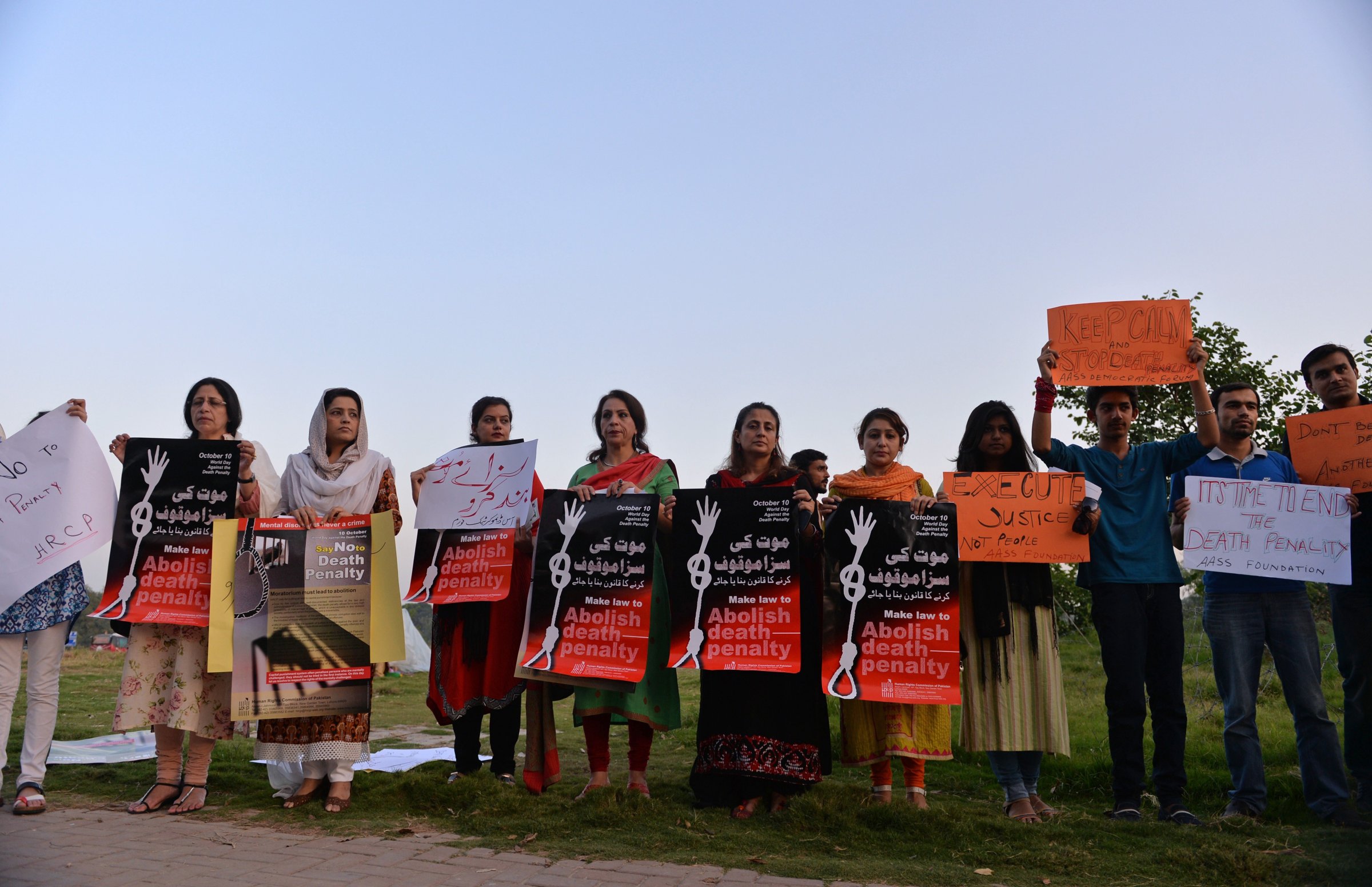
After a seven-year moratorium, Pakistan has reinstated the death penalty for nonterrorism cases eligible for capital punishment, and will begin executions in cases where appeals and clemency pleas are no longer an option.
Islamabad reintroduced the death penalty on terrorism-related cases last December, following the 2014 Peshawar school attacks that killed over 150 people. Pakistan has executed 24 people since December, already including three whose convictions were unrelated to terrorism, according to Amnesty International.
“This shameful retreat to the gallows is no way to resolve Pakistan’s pressing security and law-and-order problems,” said Amnesty International’s deputy Asia-Pacific director Rupert Abbott.
More than 8,000 citizens languish on Pakistan’s death row, including women like Aasia Bibi, a Christian convicted under the nation’s blasphemy laws. Last year, U.N. Secretary-General Ban Ki-moon urged Pakistan to restore its moratorium on the death penalty, which also applies to crimes such as adultery, apostasy and blasphemy.
Rights groups contend that Pakistan’s justice system is marred by unfair trials, poor counsel and police torture.
Pakistan’s Interior Ministry, however, released a letter clarifying that the death penalty applies “strictly as per law and only where all legal options and avenues have been exhausted and mercy petitions … have been rejected by the President.”
More Must-Reads from TIME
- Why Biden Dropped Out
- Ukraine’s Plan to Survive Trump
- The Rise of a New Kind of Parenting Guru
- The Chaos and Commotion of the RNC in Photos
- Why We All Have a Stake in Twisters’ Success
- 8 Eating Habits That Actually Improve Your Sleep
- Welcome to the Noah Lyles Olympics
- Get Our Paris Olympics Newsletter in Your Inbox
Contact us at letters@time.com